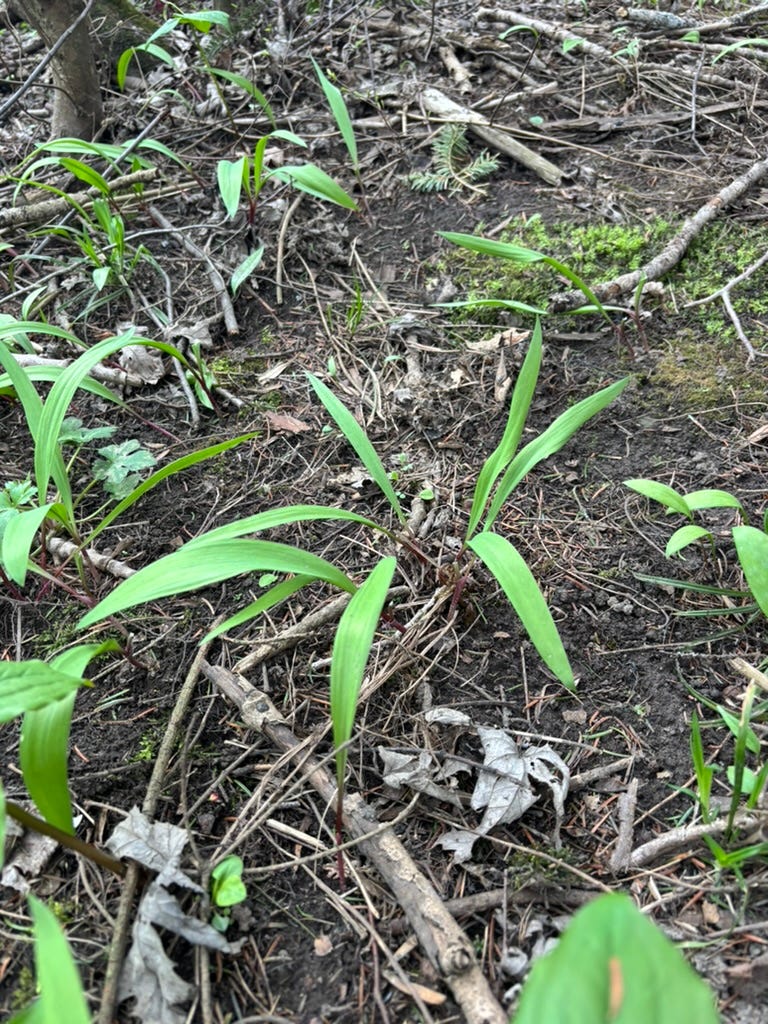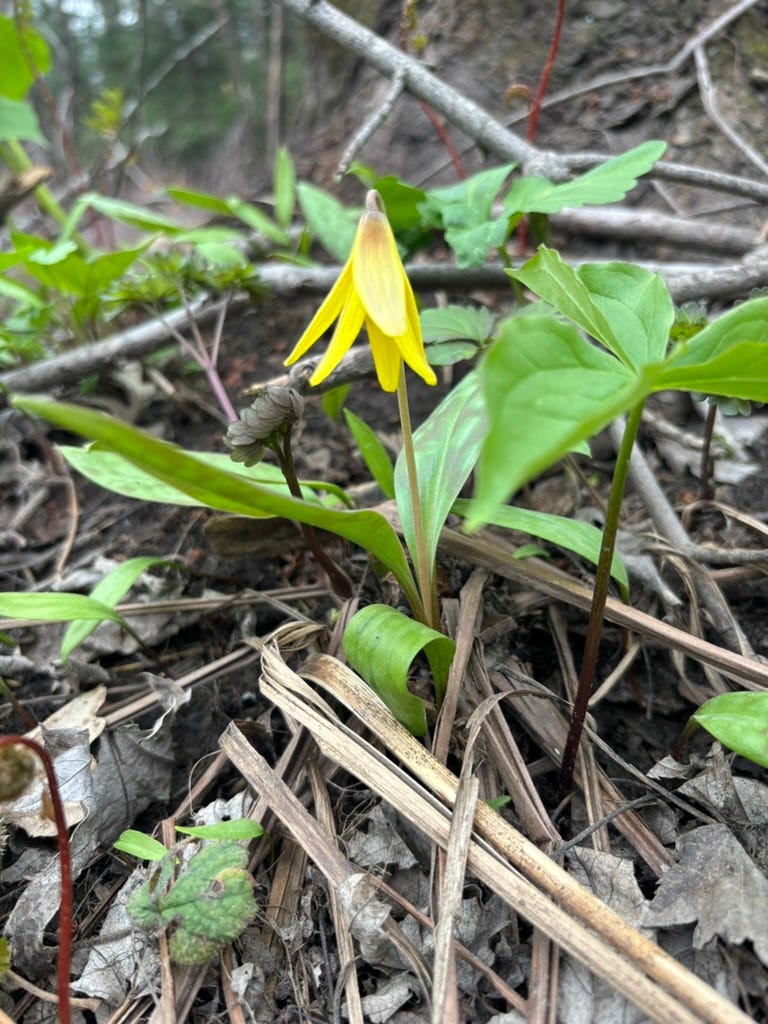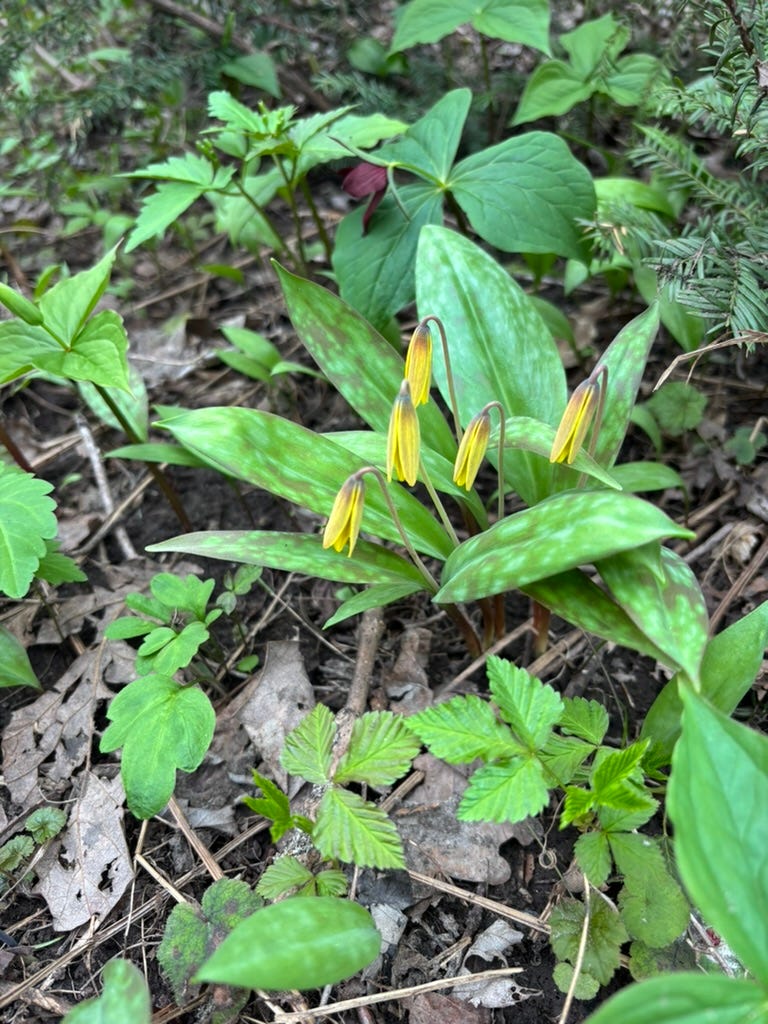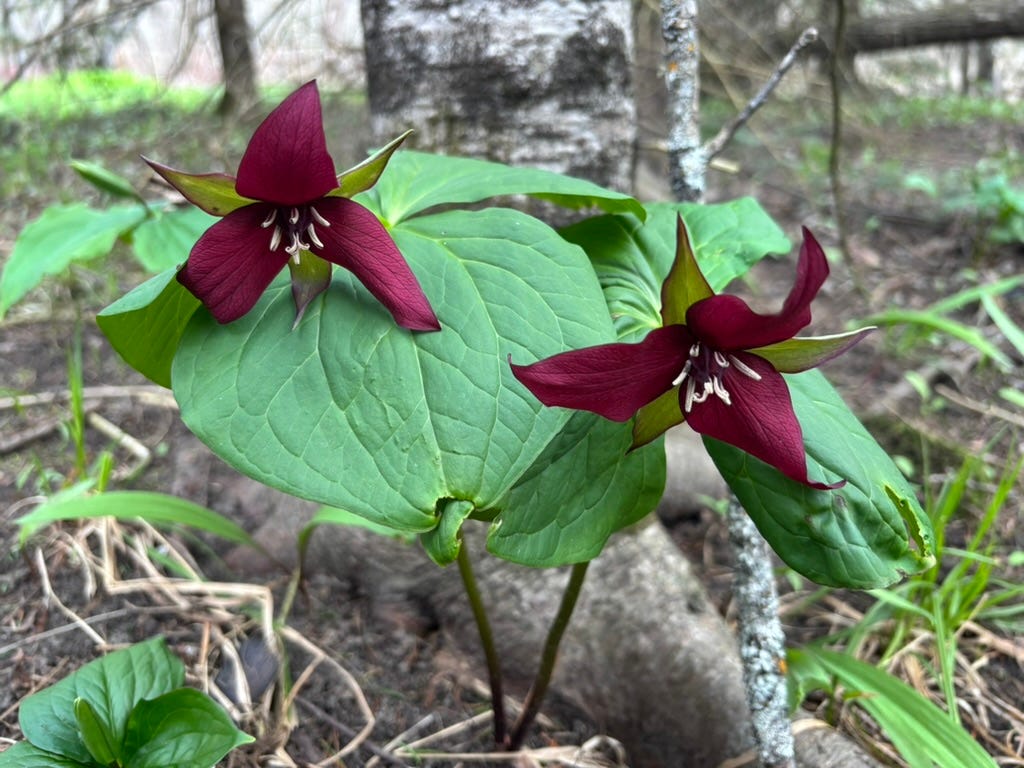
In a workshop this past week, I offered this poem as a prompt:
Work
By Aza Pace
—After Eduardo C. Corral
Like the blush of an aurora
glimpsed in the south, wonder startles.
Wonder presses flowers in a pocket press
and ducks under swags of spruce
as if every garden is a secret.
In a rainstorm, wonder hunkers on a tree limb,
twitches its feathers intricate as woodwork.
Dew pearls the morning spiderwebs with wonder.
Even strings of satellites are wonderful
beneath the steady stars.
But no one wants to hear about all your wonder
over a cappuccino:
wonder is skittish, like cottontails
nibbling grass under the pokeweed.
No, I don’t find it every day—wonder is the work.
My Response
The first sprouts of edible spring. Each late April/early May, I look across the river in search of the first bursts of new green. The emergence of ramps through past years’ deadfall is my call to get my basket and go harvesting.
Shimmering green pairs, a glint of red at their base, poke between the branches taken down by last month’s ice storm. I step cautiously not to bruise the delicate leaves. I learned, finally, to snip only the leaves. In the first years of discovering the abundance buried around my new home, I took shovel and bucket to overturn the fibrous earth. I’d separate the pungent white bulbs from the tangle of roots to wash and wash the clinging earth, the smell of garlic-onion permeating the kitchen.
I didn’t know, I want to tell the surviving plants nestled at the base of spruce and pine. I didn’t know how fragile are your systems, didn’t consider the damage. And I am sorry. Now I take a single leaf from each pair. It is more than enough to make the brilliant green blood-cleansing soup. I always think of those who belong on this land and how they must have welcomed this gift after a hard winter. First maple water, then the ramps to restore what winter may have taken.
This morning, I stepped among the deadfall, careful not to crush, searching among the look-alike trout lilies for the sleek slivers of the prized leeks. Trout lilies abound, a dull cousin to the bright ramps, dappled with pale reddish-brown, and can be mistaken for ramps. I once disparaged those trout lilies for not being ramps, not edible, too numerous to count, and therefore oddly inconsequential. For not having the ability to become soup or purify my blood.
Then I saw them. Why had I never noticed those fine bowed heads? Do they bloom and fade so quickly I’d missed them year after year? Out of a cluster of trout lily leaves a family of fine yellow petals curved back like orchids, in their centres orange and white stamens and pistils. Not showy. Simply being beautiful.
Then I recalled my son telling me that trout lily leaves can also be eaten. And I want to apologize to these abundant resilient plants for disregarding them, for not seeing, not being patient. But of course, they will go on being their rightful selves with or without my human approval or disparagement. My opinion feeds no one.
What I found in my own yard managed to restore my sense of wonder. Not as though these growing things intended this. No. I’m just learning, is all. Grateful, also, that I’ve lived this long since I seem to be a rather slow learner.
This was taken later when they’d closed up for the day.
And then there is the wonder of the first trilliums - the ones that blossom before the profusion of white and pink ones that carpet the forest floor.
Prompt:
In the poem, Aza suggests that no one wants to hear about your sense of wonder over a cappuccino. I beg to differ. I would love to hear about your sense of wonder, and where you find it.








this is beautiful, Susan. Thanks for sharing. This is different but somehow reminded me of the Lost Words Blessings song. I think you'll appreciate the history of this group and their project: https://www.youtube.com/watch?v=Hg1xFYpXuWA
This was full of wonder and appreciation. Thank you for reminding me of the abundance right outside my door.